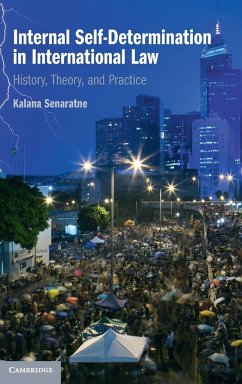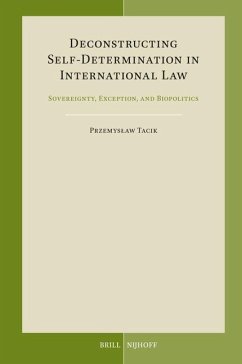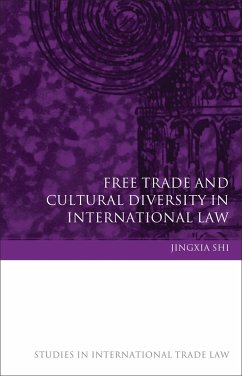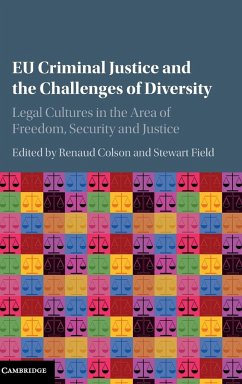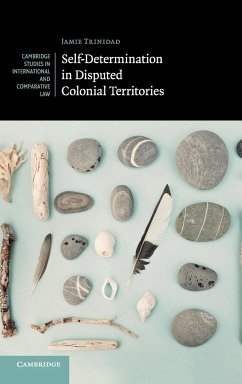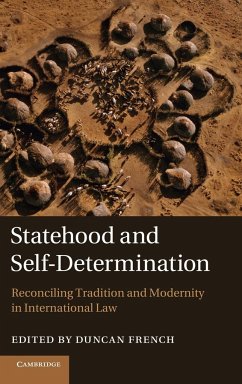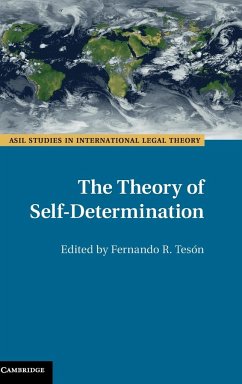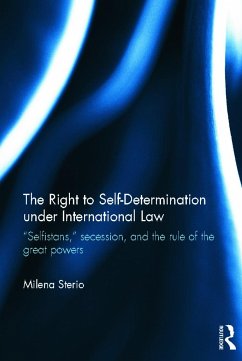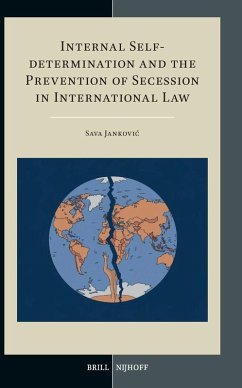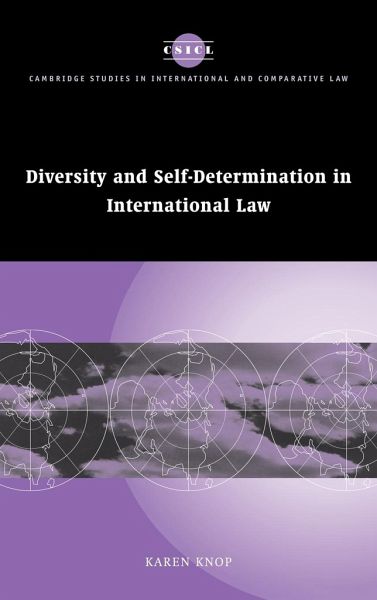
Diversity and Self-Determination in International Law
Versandkostenfrei!
Versandfertig in 1-2 Wochen
147,99 €
inkl. MwSt.
Weitere Ausgaben:

PAYBACK Punkte
74 °P sammeln!
The emergence of new states and independence movements after the Cold War has intensified the long-standing disagreement among international lawyers over the right of self-determination, especially the right of secession. Knop shifts the discussion from the articulation of the right to its interpretation. She argues that the practice of interpretation involves and illuminates a problem of diversity raised by the exclusion of many of the groups that self-determination most affects. Distinguishing different types of exclusion and the relationships between them reveals the deep structures, biases...
The emergence of new states and independence movements after the Cold War has intensified the long-standing disagreement among international lawyers over the right of self-determination, especially the right of secession. Knop shifts the discussion from the articulation of the right to its interpretation. She argues that the practice of interpretation involves and illuminates a problem of diversity raised by the exclusion of many of the groups that self-determination most affects. Distinguishing different types of exclusion and the relationships between them reveals the deep structures, biases and stakes in the decisions and scholarship on self-determination. Knop's analysis also reveals that the leading cases have grappled with these embedded inequalities. Challenges by colonies, ethnic nations, indigenous peoples, women and others to the gender and cultural biases of international law emerge as integral to the interpretation of self-determination historically, as do attempts by judges and other institutional interpreters to meet these challenges.
Table of contents:
Part I. Cold War International Legal Literature: 1. The question of norm-type; 2. Interpretation and identity; 3. Pandemonium, interpretation and participation; Part II. Self-determination interpreted in practice: the challenge of culture: 4. The canon of self-determination; 5. Developing texts; Part III. Self-Determination Interpreted in Practice: The Challenge of Gender: 6. Women and self-determination in Europe after World War I; 7. Women and self-determination in United Nations trust territories; 8. Indigenous women and self-determination; Conclusion.
When does international law give a group the right to choose its sovereignty? In a fresh perspective on this familiar question, Knop analyzes how many of the groups that self-determination most affects have been marginalized in its interpretation and how key cases have grappled with this problem of diversity.
Knop's investigation takes a new approach to the problem of diversity and self-determination of peoples.
Table of contents:
Part I. Cold War International Legal Literature: 1. The question of norm-type; 2. Interpretation and identity; 3. Pandemonium, interpretation and participation; Part II. Self-determination interpreted in practice: the challenge of culture: 4. The canon of self-determination; 5. Developing texts; Part III. Self-Determination Interpreted in Practice: The Challenge of Gender: 6. Women and self-determination in Europe after World War I; 7. Women and self-determination in United Nations trust territories; 8. Indigenous women and self-determination; Conclusion.
When does international law give a group the right to choose its sovereignty? In a fresh perspective on this familiar question, Knop analyzes how many of the groups that self-determination most affects have been marginalized in its interpretation and how key cases have grappled with this problem of diversity.
Knop's investigation takes a new approach to the problem of diversity and self-determination of peoples.





